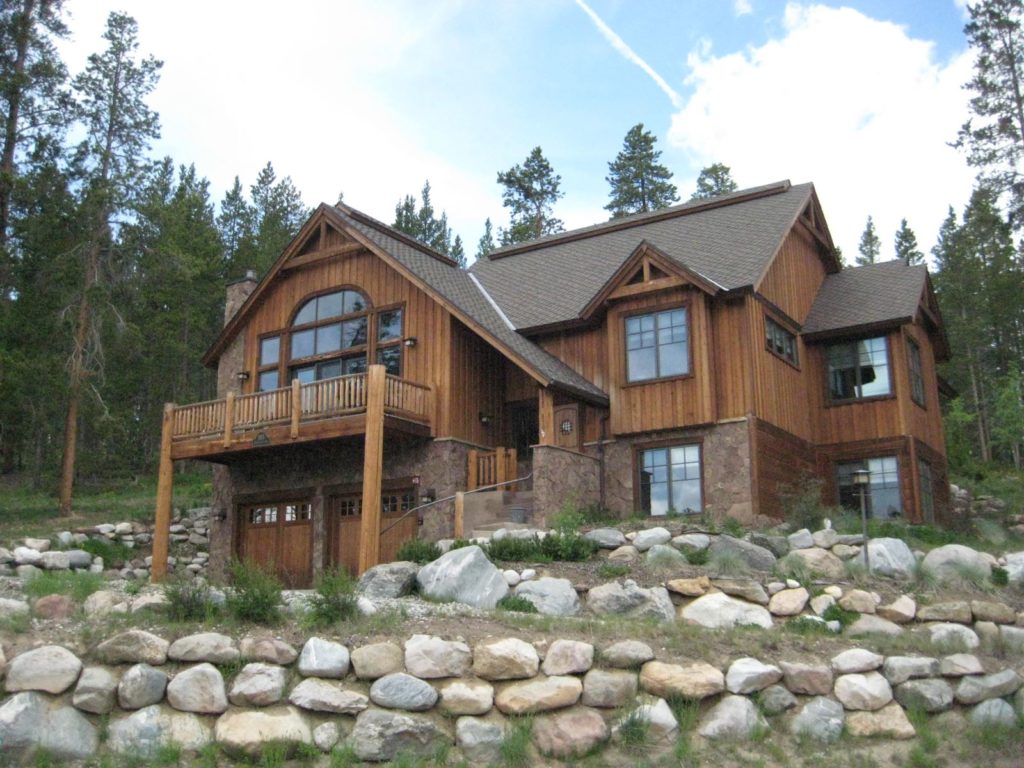
Many local jurisdictions are placing restrictions on short term rentals (STR) in Colorado mountain communities. There are a variety of new rules. It seems each community is doing something a little different. However, the reason for the new short term rental restrictions seems to be the same. The communities are seeing a shortage of housing for local workers. Local towns and governments think that limiting short term rentals will provide that much needed housing. If everyone thinks that, it must be true, right? AirBnB hired a company to study the economic impacts of short term rentals and put out an STR report.
Five Colorado mountain counties
The STR report includes Routt, Pitkin, Grand, Eagle & Summit Counties in the Colorado mountains. These counties include resort markets of Steamboat, Aspen, Winter Park, Vail & Breckenridge. Many of these resort markets and nearby communities have already put short term rental restrictions in place or are considering them.
Economic impacts
The obvious information the report shows is that short term rentals provide significant tourism dollars to local economies. Therefore, the report continues, they provides jobs to our local workers. In 2020, Summit County had 1.9 million visitors spending approximately $40,000 per resident. That spending went to local businesses, of which, 49% are tourism related. As much as we may grumble about the tourists at the height of the summer or winter season, they are the wheels that keep our economy rolling. With that said, we cannot possibly keep up with tourist business without employees and housing for them.
Local housing
The lack of affordable housing is the issue that has governments scrambling for solutions. It is not uncommon for people to be hired from another state only to have them eventually decline the job opportunity because they cannot find a place to live. Or if they can find a place, they still decline because they do not want to live with three other roommates in order to afford the rent. Affordable housing is not a new problem. Although, it has been exacerbated during the pandemic for a multitude of reasons. The most obvious one, in my opinion, is the massive appreciation in home prices we have seen. The skyrocketing home values have caused many long time property owners to decide now is a great time to sell. It also keeps the new owner from being able to cash flow on a long term rental. Other reasons compounding the shortage are an uptick in remote work, the long term inability to build smaller, lower cost properties & the lack of apartment complexes.
AirBnB’s study reveals that in 2019, there was not a shortage of rental housing for those in the 60% to 120% of AGI. Albeit, there was a shortage for those making less than that. Between 2010 and 2019 those low to moderate wage jobs have grown by 19% across the five counties but the rental supply grew by just 2%. For many years now, housing has not been keeping up with job growth.
Vacant homes
According to the AirBnB report, in 2019, 44% of the housing across the five Colorado counties are considered vacant, meaning they are not occupied by permanent residents. That percentage has actually decreased when compared to 2010 when vacant homes made up 48% of homes. There are categories for vacant homes. The AirBnB report was a little unclear as to the other categories, however, 82% of the 2019 vacant homes were considered seasonal, occasional or recreational use. That means in 2019 53,100 homes were seasonal, occasional or recreational. There are currently approximately 49,200 properties available as short term rentals. The report concludes that because these numbers are similar it suggests long term housing are not becoming short term rentals at a high rate. Rather that housing that has been seasonal is still seasonal.
Comparable employee housing
The report determined that only about 1,500 of the 49,200 short term rentals are considered to be comparable to employee housing. Approximately half of them are in Summit County. Even if these homes are converted from short term rentals to long term rentals, it is unlikely, the report speculates, they would be at rents that the low to moderate wage employees could afford.
Better solutions
Based on the information in this STR report, it is very difficult to say that limitations on short term rentals will improve the housing situation for the low to moderate income locals. The report concludes these low to moderate income households will require subsidies. Those subsidies can be in the form of incentives to homeowners to offer affordable housing or as construction incentives to build affordable housing. Summit County is currently offering subsidies to property owners that turn their short term rental into a long term rental.
Counties respond to STR report
The counties in this report have responded to the report to say it’s biased and ignores some important facts. They want those reading the report to be skeptical of it. Consider the objectives of the company that paid for the report.
I do agree that people must consider the source when reading articles, listening to commercials or videos, or taking in any information. Everyone has personal perspectives and biases. Most often information is selling you something. We must do our due diligence to decide what is worth believing.
IMO
I agree that the AirBnB STR report is missing information. They are not always comparing apples to apples. It’s unclear what some terms mean. That alone makes me skeptical. However, the counties response is vague as well. It doesn’t offer facts to point us toward STR or any other solution. There are multiple causes to the affordable housing shortage. Short term rentals are the low hanging fruit for counties. It’s one of the potential solutions they have some control over. It makes the local voters happy that something is happening without a tax increase for them. I am not sure STR restrictions, moratoriums or bans will somehow create affordable housing.
Many jurisdictions have passed taxes that raise money for local housing. That is a good solution but, unfortunately, is a slow one. It will take some time for enough money to be put into housing to make a significant impact. Our mountain towns are pricey. It’s difficult to buy a piece of land and build anything affordable, regardless if you are an individual or a government entity.
Unfortunately, the affordable housing issues are far from over. I wish I had the fast, easy solution. I wish anyone had the solution. Until the housing problem has less impact on communities, expect the attack on short term rentals to continue in some form.


Leave a Reply